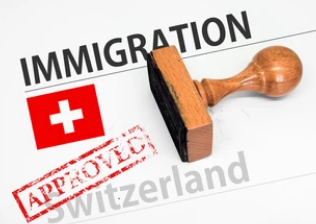Swiss naturalization: obtaining Swiss citizenship is often perceived as the holy grail by foreigners, as the ordinary procedure is said to be one of the strictest in the world!
In 2018, a change in the law made the requirements for naturalization more restrictive. Thus, an applicant must now have a settlement permit (C permit) and must have lived in Switzerland for 10 years, whereas a residence/work permit (B permit) or a temporary admission (F permit) used to be enough. On top of these conditions, naturalization applicants must prove they are fully integrated in Switzerland. For the first time, the law defines the notion of “integration” and establishes specific conditions, which cantonal authorities apply very strictly. Integration is defined as a means of coexistence between Swiss citizens and the foreign population, by which both groups respect the constitutional values and participate to Swiss economy, culture and social life.
To be fully integrated, the applicant must respect public safety, security and order, respect the values of the Federal Constitution, be able to communicate in a national language, orally and by writing, participate in working life or make efforts to acquire an education and finally encourage and support their family in their integration (art. 12 al. 1 LN).
Condition 1
The first condition is to hold a C permit, which is equivalent to permanent residency. The C permit is obtained after 10 years of residency in Switzerland for non-EU citizens and after 5 years of continuous stay under a B permit for some EU-27/EFTA citizens. In the case of strong integration, a non-EU citizen can apply for a fast-tracked C permit after 5 years of residence, if they meet specific conditions (good knowledge of the language spoken at the place of domicile, stable employment situation, no debts and no criminal record). It will be up to the discretionary power of the canton to grant the C permit after 5 years of residency. This first condition was introduced with the idea of facilitating the job of cantonal authorities when evaluating the integration profile of a candidate to naturalization. By holding a C permit it is assumed that the candidate is already well integrated in Switzerland.
Condition 2
The second condition is to be able to justify of 10 years of residency in Switzerland where during the past 5 years at least 3 years where lived in the country. The years spent under a B permit or a carte de legitimation/Ci permit count but the applicant must hold a C permit when applying for naturalization. If an applicant has been living in Switzerland for the past 10 years with different types of permits and receives a C permit on the tenth year, they could immediately apply for naturalization if they meet the cantonal residency requirements. Thus, each canton applies their own minimum residency requirements. In Geneva for example, the authorities require that the applicant live in the canton for 12 months leading up to the application and a total of at least 2 years. The applicant must maintain his residency in the same canton during the naturalization procedure.
Condition 3
The third condition is to be able to provide a Fide certificate of the language spoken at the place of domicile showing a B1 spoken level and an A2 written level. This condition cannot be waived (except for medical reasons), as the ability of an applicant to communicate in the language of their canton is a key aspect for integration. The main applicant is also encouraged to make sure that the rest of their family members make efforts to learn the local language.
Condition 4
The fourth condition is to be involved in the canton’s economy, through work, studies or by showing strong social ties with the applicant’s local community. A spouse staying home to take care of the children or a retiree would need to show that social ties are created through participating in local events and being members of local clubs or associations. Thus, having social ties with the local community is just as important as being able to communicate in the local language.
Condition 5
The fifth condition is to have always respected Swiss order and security by not holding any criminal record for the past 10 years and by not having being known by police records. The SEM consults the electronic criminal record database, VOSTRA, for every naturalization application. A single traffic violation, such as a severe speeding offence, can block a naturalization procedure as long as it appears on the criminal record database.
A naturalization application must contain documents that prove that the applicant meets all of these conditions to be accepted. The knowledge of Swiss geography, history and politics is tested through a specific exam and later on through the interview with the cantonal examiner. It will be up to the discretionary power of the authorities to decide, after the interview, if the applicant qualifies for Swiss citizenship. For children, the procedure is lighter as it is assumed that by following public or private school, the child forges strong ties with local community and builds up their identity by embracing Swiss cultural values.




